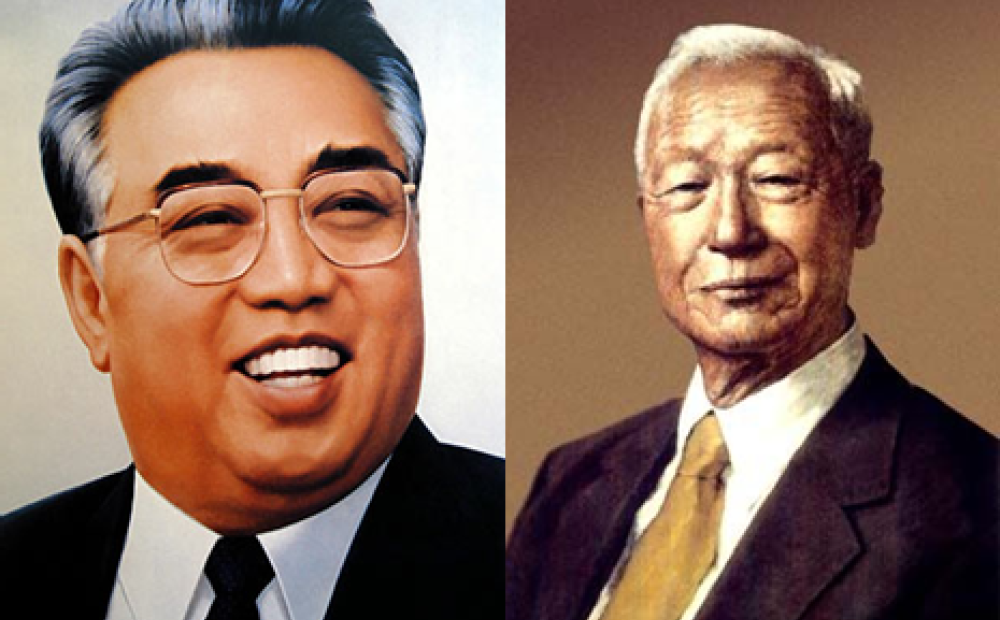The Two Koreas and the Question of National Reunification, 1953-1960

The 1953 Korean War armistice resulted in an uneasy truce along a demilitarized zone not far from the 38th parallel, the imaginary line that separated the rival Korean states prior to the conflict. While bringing an end to large-scale military operations on the peninsula, both North and South Korean leaders continued to plan for national reunification under their own respective political system. South Korean President Rhee Syngman unremittingly advocated for marching North to unify Korea (pukchin t’ongil), while North Korean leader Kim Il Sung promoted economic development to serve as a magnet for South Koreans. This panel will explore the positions of the two Korea’s on the question of national reunification after the 1953 Korean War armistice until 1960, when Rhee was forced from power.
The panel will feature Woo-Soo Park (Hanguk University of Foreign Studies), David A. Frank (Carnegie Council Global Fellow for Ethics and International Relations and professor at the University of Oregon), James F. Person (Woodrow Wilson International Center for Scholars), and Chul Soon Lee (Pusan National University).
Woo-Soo Park is professor of English in Hankuk University of Foreign Studies, in Seoul, where he teaches Shakespeare and English Renaissance Drama. He was the former president of the Rhetoric Society of Korea, and now is Vice President of the English Language and Literature Association of Korea, and the associate editor of the journal for that society. He has translated into Korean major tragedies and comedies of Shakespeare. He is collaborating with David A. Frank, University of Oregon, on a project funded by the Korea Research Foundation to study the myth of Pukchin T'ongil.
David A. Frank is professor of rhetoric in the Clark Honors College at the University of Oregon. He is a Carnegie Council Global Ethics Fellow and is author of a host of books and articles in his field. He and Woo-Soo Park of Hankuk University of Foreign Studies have received a major research grant from the Korea Research Foundation to study the Pukchin T'ongil (“March North and unify Korea”) myth. The project is titled “Ghostwriting South Korea: Syngman Rhee, Robert Oliver, and the Symbolic Construction of the Cold War.” The study features the collaboration between Rhee and Oliver (a professor of rhetoric at Pennsylvania State University) and their efforts to persuade the US foreign policy establishment, Congress, and the American public to enact Pukchin T'ongil.
James F. Person is the Senior Program Associate for the History and Public Policy Program and coordinator of the North Korea International Documentation Project. Person is co-editor of the NKIDP Working Paper Series and the History and Public Policy Program Critical Oral History Conference Series and has worked as a consultant on historical documentaries. He received his Ph.D. in Modern Korean History from The George Washington University.
Chul Soon Lee is professor in the department of political science at Pusan National University in Busan, Korea, and is currently a visiting researcher at the Korean Studies Center, George Mason University and the U.S. Committee for Human Rights in North Korea, Washington DC. He received his Ph. D. in Korean politics from Seoul National University. He specializes in the contemporary history of Korean politics, and specifically, US.-ROK relations during the Syngman Rhee administration. His publications include Comparison of the Establishment of ROK and DPRK, 1945-1948 (co-author), as well as “Syngman Rhee’s Strategy of National Survival by US Diplomacy, 1875-1953,” and “Soviet Policy toward North Korean Politics, 1945-1948.” He also served as a Research Fellow, Presidential Committee for Policy and Planning, Korea.
Hosted By

North Korea International Documentation Project
The North Korea International Documentation Project serves as an informational clearinghouse on North Korea for the scholarly and policymaking communities, disseminating documents on the DPRK from its former communist allies that provide valuable insight into the actions and nature of the North Korean state. Read more


Cold War International History Project
The Cold War International History Project supports the full and prompt release of historical materials by governments on all sides of the Cold War. Read more


History and Public Policy Program
A leader in making key foreign policy records accessible and fostering informed scholarship, analysis, and discussion on international affairs, past and present. Read more
